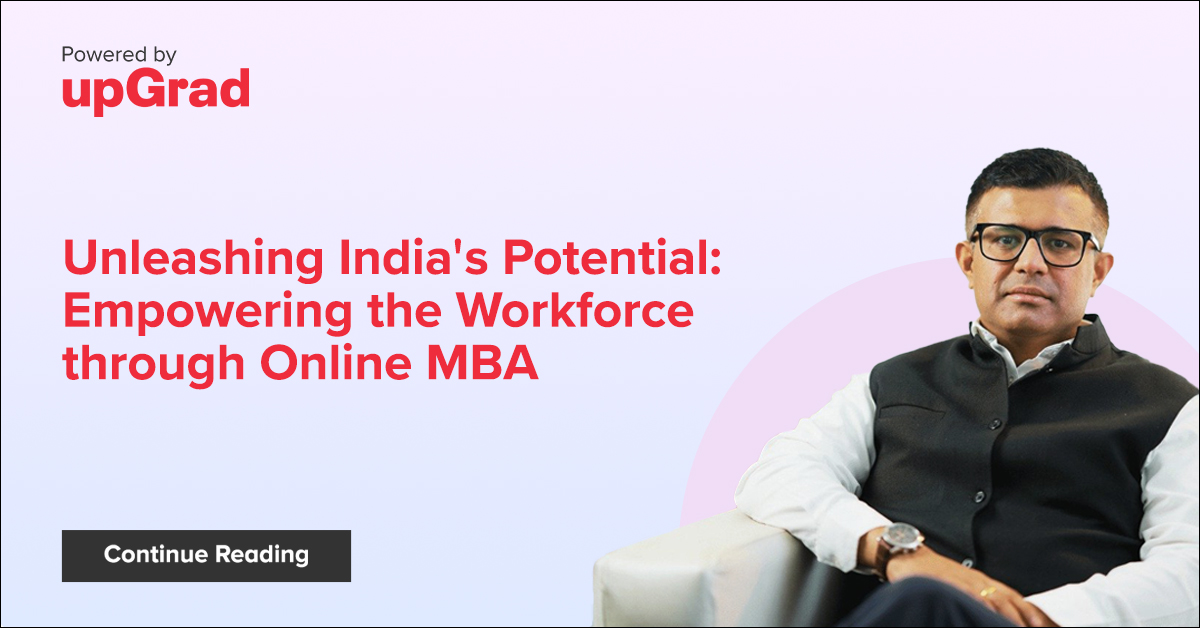
Indian stock market indices have surged to all-time highs, with the Sensex surpassing 67,000 and the Nifty approaching the 20,000 level. Foreign and domestic investments reflect high confidence in India’s economy and its future potential. Despite global economic downturns, India maintains a respectable growth rate of around 6.5%, while developed markets expect approximately 1% growth. To sustain this growth, India requires skilled professionals aligned with industry needs.
According to a recent survey of 40,000 employers by Manpower Group, India faces severe talent shortages. With a population of 1.4 billion and a significant working-age cohort, it’s crucial to skill and employ a large number of individuals to contribute to India’s growth. The World Economic Forum (WEF) predicts around 85 million job losses and 97 million new jobs due to rapid technological advancements and automation.
Disruptive technologies like robotics, blockchain, AI, and big data analytics are rapidly reshaping the business landscape and the skills required by the industry. This shift is expected to affect more occupations, highlighting the importance of individuals adapting and acquiring new skills to remain competitive. Jobs like assembly workers, data entry executives, entry-level data analysts, accountants, and journalists will be partially or completely replaced by AI, creating a demand for higher-order skills like critical thinking, creativity, emotional intelligence, and problem-solving.
India’s vast size poses a unique challenge, as a significant part of the working-age population, belonging to marginalised communities in remote areas, lacks access to quality institutions for job training. Despite numerous universities and colleges, located mostly in major cities, their reach and capacity are limited, hindering skill development for India’s massive population.
How can we educate and skill a large number of working-age individuals across the country at a low cost and on a large scale? Utilising technology to provide affordable, flexible, and accessible online programmes, designed and delivered by leading institutions in India can effectively address the intertwined issues of unemployment and skilled labour shortage. This approach offers young individuals seeking workforce entry an opportunity for appropriate training, irrespective of geographical distance, enabling learners from remote and underserved areas to achieve their professional and personal goals simultaneously.
In this context, the online MBA programmes have grown remarkably, with an 85 percent increase in accredited U.S. institutions offering them in the last five years. New-age and innovative 1-year online MBA programmes now provide unmatched flexibility and convenience for working professionals seeking to boost their leadership skills and business acumen without leaving their jobs. The integration of the latest curriculum, case studies, and experiential learning projects ensures a comprehensive and applicable education tailored to individual needs and career objectives. This is where an MBA with O.P. Jindal Global University and powered by upGrad is receiving wider intent coming out Indian metros and cities. The program is stretched over 12 months and offers blended learning with live and recorded lectures along with extensive Experiential learning for stronger practical knowledge. It also includes 4 specialisations namely Marketing, Finance, Strategy & Leadership, and Digital Finance to train and empower freshers and experienced professionals, alike with in-depth subject understanding and skills.
In essence, online education serves as a potent tool to train India’s workforce, overcoming constraints and challenges like population size, per capita income, geographical accessibility, and the need for flexibility. Affordable and flexible online programmes offered by leading institutions can help India achieve its goal of becoming the third-largest economy globally. Rapidly educating the labour force contributes significantly to India’s national strategic objective of increasing economic strength and safeguarding its interests on the international stage.
Want to stay in the loop with exciting updates about IIMs and top-notch MBA colleges in India & abroad? Just hop on over to PaGaLGuY.Com and sign up now!
